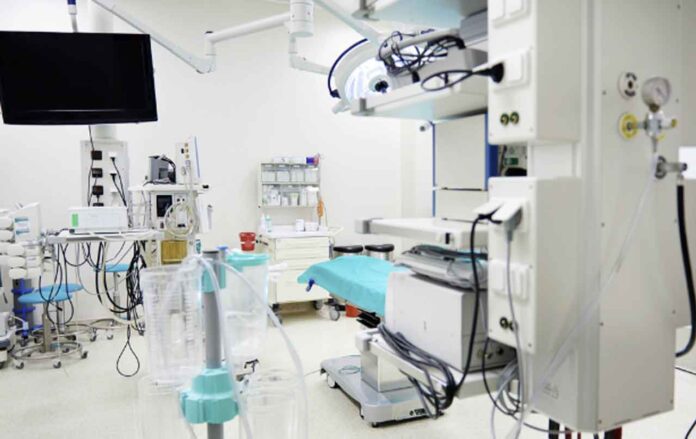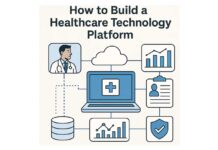The landscape of medicine in the Western world has undergone profound changes over the past few decades, largely driven by technological advancements. From improving diagnostic accuracy to enhancing treatment options and ensuring the safe transport of medical supplies, technology plays an integral role in modern healthcare. As we delve into how technology has transformed medicine, we will also highlight alarming statistics that underscore the need for these innovations.
Reducing Medical Errors
One of the most pressing challenges in healthcare is the prevalence of medical errors, which, according to Johns Hopkins, caused 251,454 deaths in 2013, making them the third leading cause of death in America. This staggering statistic highlights the critical need for technological solutions aimed at minimizing human error in medical settings.
Electronic health records (EHRs) have revolutionized how patient information is managed, allowing for better coordination among healthcare providers. EHR systems reduce the risk of miscommunication by providing real-time access to patient histories, allergies, and medication lists. Additionally, decision support systems integrated into EHRs can alert providers to potential drug interactions or suggest alternative treatments based on the patient’s unique profile.
Moreover, advanced imaging technologies such as MRI and CT scans allow for earlier and more accurate diagnoses, reducing the likelihood of incorrect treatment plans. By implementing machine learning algorithms, healthcare systems can analyze vast amounts of data to identify patterns and predict outcomes, further aiding in clinical decision-making. These advancements are essential in not only improving patient outcomes but also in addressing the alarming rates of medical errors that can have devastating consequences.
Transporting Medical Supplies
In the realm of logistics, the transport of medical supplies has also seen significant advancements. According to PLS Logistics, one innovative solution is the use of “Cryogenic Reefers,” a type of refrigerated hauler capable of maintaining temperatures as low as -230 degrees Fahrenheit. This technology is crucial for transporting sensitive medical supplies, including certain vaccines and biological materials that require ultra-cold storage to remain effective.
The use of Cryogenic Reefers ensures that medical supplies reach their destinations safely and in optimal condition. This is particularly important for time-sensitive products, such as organs for transplantation or vaccines that must be administered within specific temperature ranges. The reliability of these transport systems not only safeguards the integrity of medical supplies but also enhances the overall efficiency of healthcare delivery.
Additionally, advanced tracking systems integrated into these transportation methods allow healthcare providers to monitor the condition of medical supplies throughout the shipping process. Real-time tracking provides assurance that items are being transported under the necessary conditions, reducing waste and ensuring that patients receive the best possible care.
Treatment Innovations for Opioid Dependency
Another area where technology has made significant strides is in the treatment of opioid dependency. According to the FDA, three main types of active ingredients are used in approved medications for this condition: methadone, buprenorphine, and naltrexone. Each of these medications plays a critical role in managing opioid dependence, but their effectiveness can be enhanced through technological innovations.
Telemedicine, for example, has become a game-changer in addiction treatment, allowing patients to access care from the comfort of their homes. This is particularly beneficial for individuals living in rural areas or those facing barriers to in-person visits. Through virtual consultations, patients can receive counseling, prescriptions, and ongoing support, all of which are essential for successful recovery.
Digital platforms support these efforts by giving patients more control over how they manage prescriptions. Many patients rely on KiwiDrug and similar trusted online pharmacies to order needed medications and review clear safety guidance. Secure payment options and home delivery reduce travel stresses and help patients stay consistent with their treatment plans.
Moreover, mobile health applications have emerged as valuable tools for individuals in recovery. These apps can help users track their medication schedules, provide reminders for appointments, and offer support resources. By leveraging technology, patients can engage more actively in their treatment plans, leading to improved adherence and better outcomes.
Conclusion
The advancements in technology within the Western healthcare system have undeniably transformed medicine, addressing critical challenges such as medical errors, supply chain logistics, and treatment options for chronic conditions like opioid dependency. As we continue to innovate and integrate new technologies, the potential to enhance patient care and improve outcomes is limitless. However, it’s crucial that these advancements are implemented thoughtfully, ensuring that they serve to enhance the human elements of care in addition to the technical aspects. The future of medicine is not just about machines and algorithms; it’s about making healthcare more efficient, accessible, and ultimately, more human.







